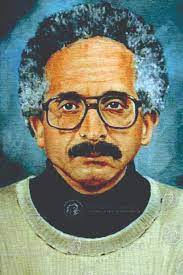Sonallah Ibrahim biography
Updated: 12 February 24
3
Introduction
Sonallah Ibrahim is a prominent Egyptian author, known for his distinctive narrative style and critical perspective on Arab society and politics. Born on May 23, 1937, in Cairo, Egypt, Ibrahim’s works often delve into the socio-political dynamics of Egyptian and Arab life, offering insightful commentary on the complexities of post-colonial and modern existential challenges.

| Key Works |
|---|
|
Literary Style and Themes
Sonallah Ibrahim is celebrated for his experimental approach to narrative structure, often blending realism with surrealism and satire to explore themes of political oppression, existential despair, and the impact of capitalism and globalization on Arab societies. His work is characterized by sparse, precise language and a deep focus on the inner lives of his characters, reflecting broader societal issues through personal stories.
Awards and Recognition
Ibrahim has received numerous accolades throughout his career, including the prestigious Arab Novel Award in 2014. Despite his critical acclaim, he famously declined the Egyptian government’s Prize for Literature in 2003 as a protest against the regime’s policies and the state of freedom of expression in Egypt.
Influence and Contribution
Ibrahim’s contributions to Arabic literature are profound, influencing a generation of writers and intellectuals with his innovative use of language and narrative form. His works have been translated into several languages, broadening his impact on global literature. He is a pivotal figure in the post-1960s generation of Arabic literature, known for his bold critique of political and social issues.
Personal Life
Ibrahim’s early involvement in political activities led to his imprisonment from 1959 to 1964, an experience that deeply influenced his literary voice and thematic concerns. He studied law at Cairo University and later cinema in Moscow, which contributed to the cinematic quality of his narratives. Despite facing censorship and controversy in his home country, Ibrahim has remained a steadfast and influential voice in Arab literature.
FAQs
What themes are prevalent in Sonallah Ibrahim’s works?
Themes of political oppression, social injustice, alienation, and the critique of capitalism and globalization are prevalent in his works.
How has Sonallah Ibrahim’s personal life influenced his writing?
His imprisonment and political activism have deeply influenced his writing, infusing his works with a critical perspective on government and society.
What makes Sonallah Ibrahim’s literary style unique?
His experimental approach, combining realism with surrealism and satire, and his minimalist yet powerful use of language, make his style unique.
Has Sonallah Ibrahim won any awards for his work?
Yes, he has won several awards, including the Arab Novel Award in 2014, and he famously declined the Egyptian government’s Prize for Literature in 2003.
Are Sonallah Ibrahim’s works available in languages other than Arabic?
Yes, his works have been translated into several languages, making his critical insights accessible to a global audience.
Author Bio of the Reviewer
Welcome to My Review Book (MRB) – a haven for book enthusiasts and a platform dedicated to diving deep into the essence of literature. Our team, with diverse backgrounds in literature, history, and cultural studies, brings a wealth of knowledge and passion to our reviews. We strive to connect readers with books that will not only entertain but also enrich and inform.
Please Write Your Comments